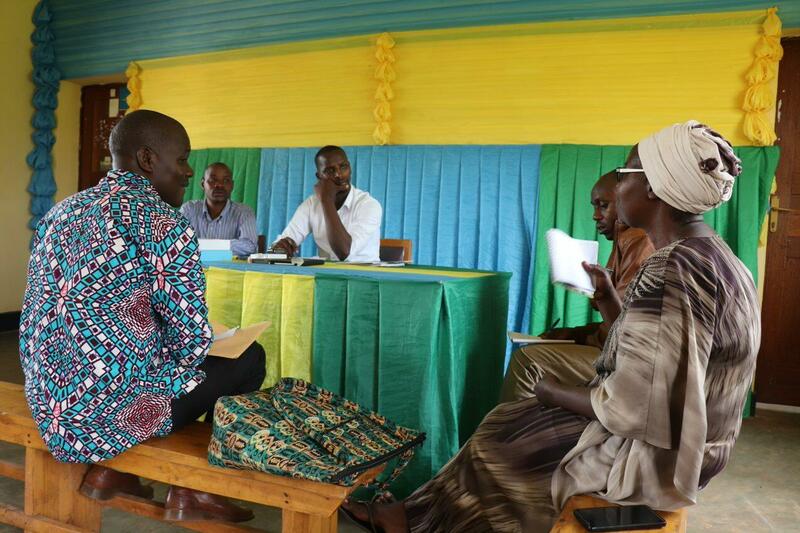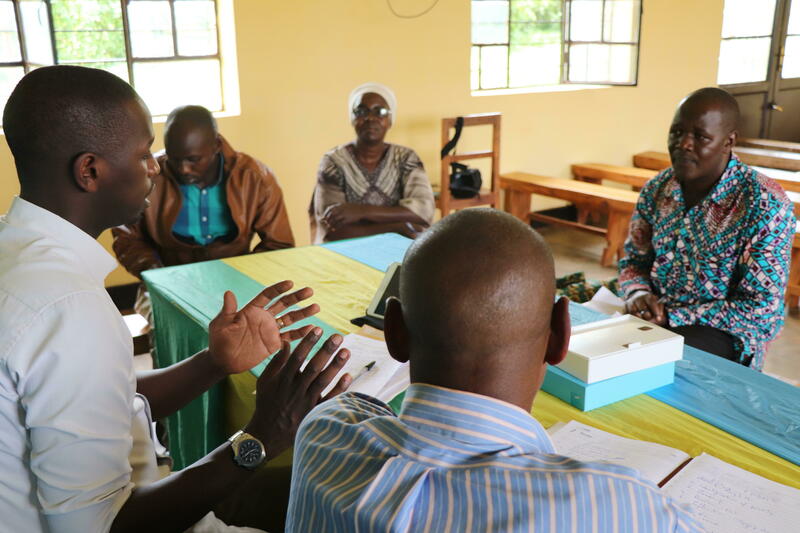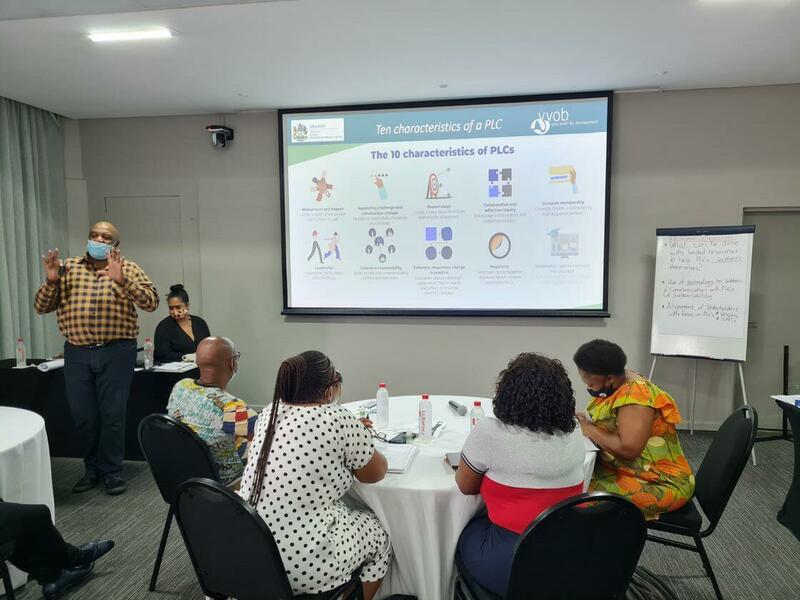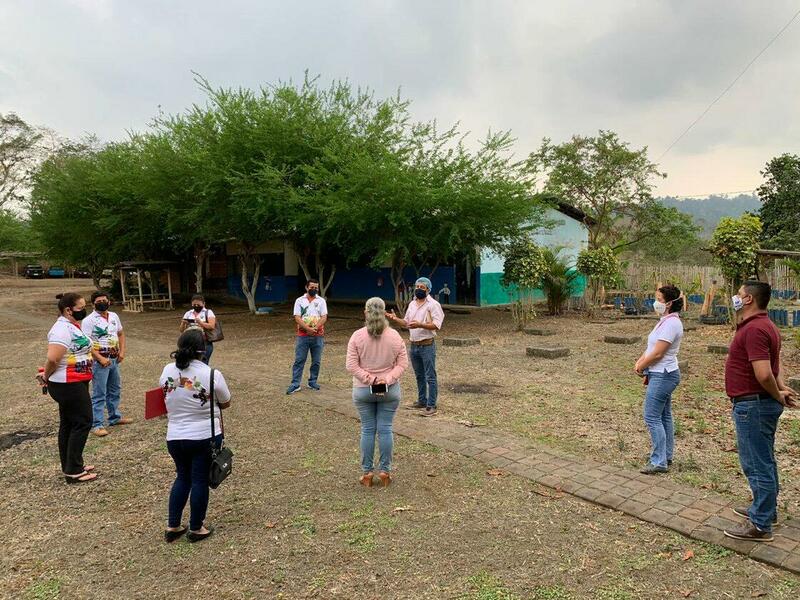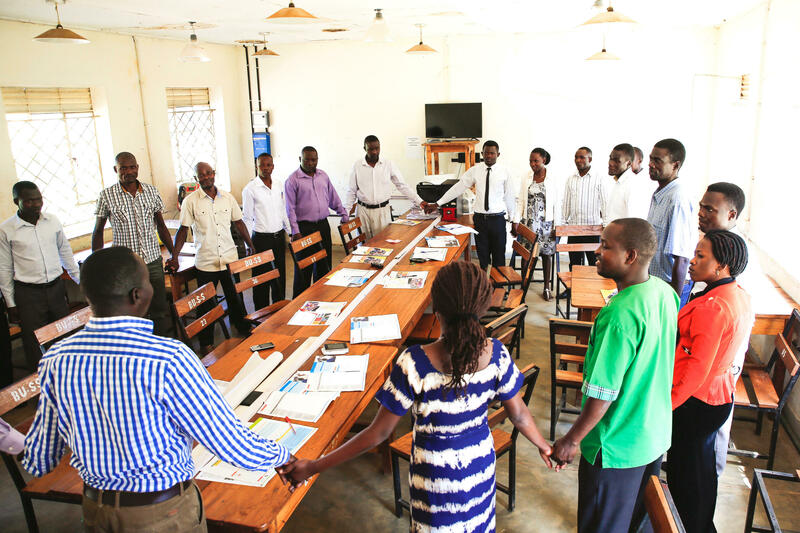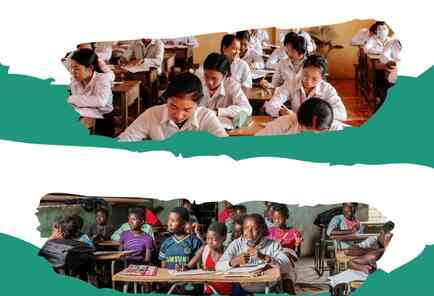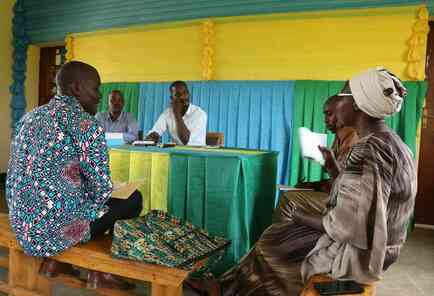(Re)watch the webinar on professional learning communities
Working together, exchanging experiences, sharing knowledge and learning from each other - these are the main ingredients of a professional learning community. Such a group consists of teachers, school leaders and/or teacher trainers who work together on their motivation and their professional development. This has a positive effect on their teaching methods and ensures the quality of education at their school improves continuously. After all, education cannot be of a higher quality than the teachers who teach it.
Lifelong learning
In a professional learning community, teachers and teacher trainers set their own learning objectives and maintain control over their own development path. When these groups come together, they share and reflect on common challenges, specific needs and solutions applied in the classroom. In this way, they learn from each other and make each other stronger. Furthermore, a PLC also creates a sense of belonging and gives self-confidence to those participating in these communities.This approach to educational professional development is a way of lifelong learning and has already proved its effectiveness several times. This was demonstrated in our webinar on 21 October 2021, in which various inspiring practices from three different countries were discussed. Here is a brief overview.
Addressing issues through Professional Learning Communities in Rwanda
VVOB has a long history of strengthening the professional development of teachers and school leaders through professional learning communities. This is also the case in Rwanda, where VVOB supports school leaders to improve their leadership skills by means of professional learning communities.When a group of school leaders comes together to learn from each other, they always follow a fixed cycle. First, priority and common issues and challenges are identified. These might include early school drop-out, limited parental and community involvement, or multilingualism in the classroom. Next, they rank these problems in order of priority and plan development of strategies and approaches to tackle these problems one by one. Once they have tried their strategies, it is time for evaluation and reflection. After that, the best solution is implemented in the different schools.
Peer learning during COVID-19
During COVID-19 and related school closures, many new challenges emerged. Throughout this period, VVOB continued to support school leaders through online professional learning communities. Together, they exchanged ideas on how to reach their students and keep them motivated during this difficult period.They also used these learning communities to prepare for the reopening of the schools together. For this, they used a toolkit designed by the Teacher Task Force (TTF) and UNESCO. In Rwanda, VVOB adapted the TTF toolkit for active use in PLCs for school leaders. The contextualised toolkit stimulated quick and practical learning on questions that school leaders were facing on a daily basis: How can we ensure distance learning? How do we protect the students’ and teachers’ well-being? How do we communicate about the reopening of schools? Supporting peer learning in PLCs proved to be a particularly effective support mechanism.
In South Africa, VVOB supports teachers to support each other
The South African Department of Basic Education (DBE) identifies professional learning communities as the key to improving educational outcomes. VVOB in South Africa has supported the efforts of the DBE in implementing and supporting the development of PLCs. They learned a great deal from this. For example, it was clear that all education stakeholders had to play their part, including national, provincial and district officials, teacher training institutes and school management teams, to support teachers and provide a safe environment in which they can work together and reflect critically. Another lesson learned is that PLCs are needs-driven, require mutual trust and respect, their members should be collectively responsible for learning, and they are more effective when led by a skilled facilitator.VVOB in South Africa and the DBE have consolidated their knowledge and experience about PLCs in a variety of formats such as online courses, video series and brochures to further increase support for PLCs. Many of these initiatives continue to resonate within the education sector in South Africa. So, it will not be long before the expected improvement in educational outcomes becomes visible in classrooms.
"PLCs add value to quality education for our students, as they provide resources and methods which can be used by teachers to learn from each other’' - participant in an online workshop for district officials on promoting PLCs, South Africa
The power of intrinsic motivation of teachers in Uganda
In addition to the good practices of VVOB in Rwanda and South Africa, the STiR Education project in Uganda was presented. STiR Education supports education systems in India and Uganda by fostering intrinsic motivation among teachers and focusing on lifelong learning through professional learning communities for teachers. These meetings are led by school lectors who familiarise teachers with key practices in the classroom. The networks strengthen peer connections and foster mutual support and sustainable improvement. Between meetings, teachers act on their learning by introducing new practices in their classrooms. They are observed by a school leader or peer and receive feedback for further improvement. Afterwards, there is also room for reflection and evaluation.
Intrinsic motivation lies at the heart of this model lies. STiR Education believes that intrinsic motivation is the key to success in making lifelong learning possible for everyone at all levels of the education system. Intrinsic motivation gives a person great satisfaction and energy. Much more than, for example, an attractive salary. When a teacher receives recognition for what they do, they will be intrinsically motivated to become even better. And that is exactly what STiR Education is trying to achieve through professional learning communities.VVOB published technical brief #2 on the importance of Professional Learning Communities
Professional learning communities in the picture
